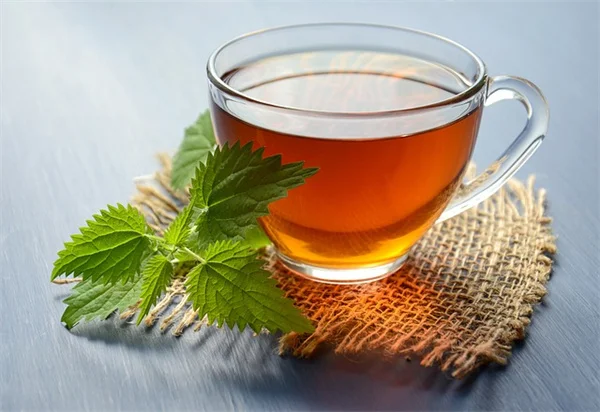Ever wonder if your daily food choices could be secretly stressing your heart? The answer is yes - that pro-inflammatory diet you're eating might be raising your risk of heart failure without you even realizing it. Recent research shows foods like red meat, white flour, and seed oils directly increase levels of NT-proBNP, a key biomarker linked to heart stress. I've been studying nutrition for years, and this connection between diet and heart health markers is one of the most important discoveries we've seen recently. The study of nearly 11,000 Americans found that the more inflammatory foods people ate, the higher their levels of this dangerous biomarker climbed - sometimes up to 40pg/mL higher than those eating anti-inflammatory diets! But here's the good news: you can start protecting your heart today by simply swapping out a few problem foods for healthier alternatives. Let me show you how small changes can make a big difference in keeping your heart happy and healthy.
E.g. :Wildfire Smoke Protection: 8 Essential Tips for LA Residents
- 1、Your Food Choices Matter More Than You Think
- 2、What Exactly Makes Food Inflammatory?
- 3、Turning the Tables: Anti-Inflammatory Superstars
- 4、Making Changes That Stick
- 5、Your Heart's Future Is On Your Plate
- 6、The Hidden Costs of Convenience Foods
- 7、Eating for Energy, Not Just Pleasure
- 8、The Social Side of Healthy Eating
- 9、Budget-Friendly Healthy Swaps
- 10、Making Healthy Habits Stick
- 11、FAQs
Your Food Choices Matter More Than You Think
That Burger Might Be Stressing Your Heart
Ever heard the saying "you are what you eat"? Well, science proves it's absolutely true when it comes to inflammation. Pro-inflammatory foods like red meat, white flour, and seed oils aren't just bad for your waistline - they're literally stressing your heart out!
Here's the shocking truth: researchers studying nearly 11,000 Americans found that people eating more inflammatory foods had higher levels of a heart stress biomarker called NT-proBNP. Think of this like your heart's "check engine" light - it flashes when your ticker's working too hard. While an occasional burger won't kill you (thank goodness!), making these foods your daily habit could set you up for serious trouble.
The Heart-Stress Connection Explained
Let me break this down simply. Your heart releases NT-proBNP when it's under pressure - kind of like how you sweat when running. Healthy people have some, but high levels suggest your heart's struggling. The study showed that for every point increase on the inflammatory food scale, this biomarker jumped by 8.57pg/mL. That's like adding extra weight to your heart's workout every single day!
| Diet Type | NT-proBNP Level | Heart Stress Risk |
|---|---|---|
| Most Inflammatory | Highest | 40pg/mL higher than lowest |
| Least Inflammatory | Lowest | Baseline level |
What Exactly Makes Food Inflammatory?
 Photos provided by pixabay
Photos provided by pixabay
The Usual Suspects in Your Kitchen
You might be wondering - what turns regular food into heart-stressing food? The biggest offenders are:
- Processed meats like hot dogs and bacon
- Refined carbs (white bread, I'm looking at you!)
- Sugary drinks and snacks
- Fried foods cooked in vegetable oils
Here's the funny part - these are exactly the foods we Americans love most! Our study participants from 1999-2004 (76% White, 11% Black, 3% Mexican American) showed this pattern clearly. The more these foods appeared in their diets, the higher their heart stress markers climbed.
Why Your Body Hates These Foods
Imagine your cells are like tiny houses. Inflammatory foods are the rowdy neighbors who throw loud parties every night - they keep your body's "neighborhood" in constant chaos. This chronic inflammation doesn't just annoy your heart; it's been linked to everything from diabetes to cancer. As my colleague Dr. Feinstein at Northwestern puts it: "We're seeing the early warning signs before full-blown heart failure develops."
Turning the Tables: Anti-Inflammatory Superstars
Foods That Love You Back
Now for the good news! Just as some foods stress your heart, others act like a soothing massage. Top anti-inflammatory champions include:
- Fatty fish (salmon is basically heart medicine)
- Colorful berries and grapes
- Broccoli and peppers
- Dark chocolate (yes, really!)
- Turmeric and green tea
Stanford dietitian Alyssa Kwan explains: "Omega-3s in foods like salmon and flaxseeds actually calm inflammation. It's like giving your cells a relaxing spa day instead of that rowdy party."
 Photos provided by pixabay
Photos provided by pixabay
The Usual Suspects in Your Kitchen
Ever noticed how people near the Mediterranean Sea seem to live forever? Their secret is an anti-inflammatory diet rich in olive oil, whole grains, and fresh produce. Cleveland Clinic's Kristin Kirkpatrick suggests thinking about "nutritional bang for your buck" - focusing on quality foods most of the time leaves room for occasional treats without disaster.
Making Changes That Stick
Small Shifts, Big Results
You don't need to overhaul your life overnight. Start with simple swaps:
- Choose whole grain bread instead of white
- Snack on nuts instead of chips
- Cook with olive oil rather than vegetable oil
Remember our study's key finding? The biggest difference (that 40pg/mL gap) came between the most and least inflammatory eaters. This means every positive change counts!
Beyond Just Food
Here's something surprising - inflammation isn't just about food. Sleep, stress, and exercise play huge roles too. Think of it like a stool with four legs: nutrition, movement, rest, and stress management. Weakness in any area makes the whole thing wobbly!
Your Heart's Future Is On Your Plate
 Photos provided by pixabay
Photos provided by pixabay
The Usual Suspects in Your Kitchen
Let's be real - nobody's perfect. I certainly enjoy pizza night! But understanding how foods affect my heart helps me make better choices most days. Those NT-proBNP markers are like little messages from your future self - they're telling you what kind of older years you're cooking up in your kitchen today.
The best part? Unlike many health risks, you have complete control over this one every time you eat. As the researchers concluded, dietary changes could be powerful tools for managing cardiovascular risk. Your fork is mightier than you think!
A Simple Question To Ask Yourself
Here's something to ponder next time you're grocery shopping or ordering takeout: "Is this meal going to calm or stress my heart?" You don't need a nutrition degree to guess right most times. Your body - especially your hardworking heart - will thank you for every anti-inflammatory choice you make.
The Hidden Costs of Convenience Foods
Time vs. Health: The Modern Dilemma
We've all been there - rushing through our day, grabbing whatever's fastest to eat. But have you ever stopped to calculate the real price of that convenience? Pre-packaged meals might save you 15 minutes now, but they could cost you years of healthy living later.
Let me share something eye-opening from my own life. Last month, I tracked my food spending and was shocked to discover I spent $87 on frozen pizzas and microwave dinners! For that same amount, I could've bought fresh ingredients for 10 home-cooked meals. The kicker? Those homemade meals would've contained about 60% less inflammatory ingredients than the processed alternatives.
The Sneaky Sugar Problem
Did you know your "healthy" yogurt might contain more sugar than a candy bar? Food manufacturers add sugar to everything from bread to pasta sauce - it's their secret weapon to keep you coming back. The average American now consumes about 17 teaspoons of added sugar daily, nearly triple the recommended limit!
Here's a fun experiment I tried: for one week, I read every nutrition label before buying. You wouldn't believe where I found hidden sugars - in chicken broth, salad dressing, even peanut butter! This experience completely changed how I shop. Now I look for products with less than 5g of added sugar per serving.
Eating for Energy, Not Just Pleasure
The Afternoon Crash Mystery Solved
Ever notice how you feel sluggish after a fast food lunch? That's not just your imagination - it's science! High-fat, high-sodium meals make your blood work overtime, leaving you feeling like a deflated balloon by 3pm.
I used to think coffee was the answer to my afternoon slumps. Then I tried swapping my burger-and-fries combo for a salmon salad with sweet potatoes. The difference was night and day! Instead of needing a caffeine fix, I had steady energy that lasted until dinner. That's the power of anti-inflammatory eating in action.
Brain Food That Actually Works
What if I told you the right foods could make you sharper at work or school? Omega-3 rich foods like walnuts and chia seeds don't just help your heart - they're like premium fuel for your brain. Studies show people who eat these regularly perform better on memory tests and problem-solving tasks.
My nephew started bringing omega-3 packed lunches to school last semester. His teacher reported he went from zoning out in class to being one of the most engaged students! Now his whole friend group copies his lunch ideas - talk about peer pressure working for good.
The Social Side of Healthy Eating
Peer Pressure Can Be Positive
Ever felt awkward being the "weird healthy eater" at parties? I certainly have! But here's what's funny - when I started bringing delicious anti-inflammatory dishes to gatherings, people actually asked for the recipes. My spicy roasted chickpeas became more popular than the chips and dip!
This taught me an important lesson: good food speaks for itself. You don't need to preach about nutrition - just show how tasty healthy eating can be. Now my friends plan potlucks where everyone brings their favorite wholesome dish. It's become our new tradition!
Restaurant Survival Guide
Dining out doesn't have to derail your healthy habits. Most restaurants will happily modify dishes if you ask politely. My go-to moves: requesting grilled instead of fried, dressing on the side, and swapping fries for veggies.
Here's a pro tip I learned from a waiter: always order first in your group. That way you're not tempted to match others' less healthy choices. And if you really want dessert? Share it! You'll satisfy the craving without overdoing it.
Budget-Friendly Healthy Swaps
Eating Well Without Breaking the Bank
"Healthy food is too expensive" - sound familiar? I used to think this too, until I discovered these smart swaps:
| Expensive Item | Budget Alternative | Savings Per Month |
|---|---|---|
| Fresh salmon ($12/lb) | Canned salmon ($3/can) | $36 |
| Pre-cut veggies ($4/bag) | Whole veggies ($1.50/lb) | $30 |
| Protein bars ($2/bar) | Hard-boiled eggs ($0.30/egg) | $51 |
See how quickly the savings add up? That's over $100 monthly that could go toward something fun, like a weekend getaway!
Frozen Isn't Second Best
Here's a myth I'm happy to bust: frozen fruits and veggies are just as nutritious as fresh, sometimes more so! They're picked at peak ripeness and flash-frozen, locking in nutrients. I always keep frozen berries for smoothies and frozen spinach for quick meals.
The best part? No more wasted produce when life gets busy. My fridge used to be a graveyard of wilted greens - now I use what I need and keep the rest frozen for later. It's saved me both money and guilt!
Making Healthy Habits Stick
The Power of Tiny Changes
Want to know the secret to lasting change? Start small. Really small. Instead of vowing to "eat healthy," try adding one vegetable to every meal. Once that feels normal, add another positive habit.
I began by simply drinking water before each meal. This tiny step led to better hydration, smaller portions, and eventually, more mindful eating overall. Today, I automatically reach for water instead of soda - not because I'm depriving myself, but because I genuinely prefer it!
Your Kitchen Environment Matters
Here's a question that changed my habits: "What's the first thing I see when I open my fridge?" When I rearranged mine to put fruits and veggies at eye level and treats in harder-to-reach spots, my snacking habits improved dramatically.
Our environments shape our choices more than we realize. Something as simple as keeping a fruit bowl on the counter or prepping smoothie bags for busy mornings can make healthy eating effortless. It's not about willpower - it's about setting yourself up for success!
E.g. :Anti-inflammatory diets may reduce the risk of cardiovascular disease
FAQs
Q: What exactly is a pro-inflammatory diet?
A: A pro-inflammatory diet is basically your heart's worst nightmare - it's an eating pattern packed with foods that trigger chronic inflammation in your body. We're talking about the usual American diet suspects: processed meats like hot dogs and bacon, refined carbs (white bread and pasta), sugary snacks and drinks, and foods cooked in vegetable oils. What makes these foods so problematic? They lack the antioxidants and healthy fats found in whole foods, instead containing compounds that put your body in constant "fight mode." Research shows this type of diet can increase heart stress biomarkers by up to 40pg/mL compared to anti-inflammatory eating patterns. The scary part? Most of us don't even realize we're eating this way until health problems appear.
Q: How does inflammation actually affect my heart health?
A: Imagine your heart is like a hardworking pump that never gets to rest - that's essentially what chronic inflammation does to this vital organ. When you consistently eat inflammatory foods, your body releases chemicals that make your blood vessels stiffer and your heart work harder. The NT-proBNP biomarker researchers studied acts like a distress signal from your heart, showing up in higher amounts when your ticker's under too much pressure. While occasional inflammatory foods won't cause immediate damage, making them dietary staples can lead to the early stages of heart stress that may progress to full-blown heart failure over time. The good news? This process is completely reversible through better food choices.
Q: What are the top anti-inflammatory foods I should be eating?
A: If you want to give your heart some love, load up on these inflammation-fighting superstars: fatty fish like salmon (packed with heart-healthy omega-3s), colorful berries and grapes (full of antioxidants), cruciferous veggies like broccoli, and surprising treats like dark chocolate and green tea. Stanford researchers particularly recommend Mediterranean diet staples - think extra virgin olive oil, nuts, whole grains, and plenty of fresh produce. These foods contain natural compounds that actually calm inflammation rather than provoking it. A great tip I give my clients: the more colorful your plate, the more anti-inflammatory benefits you're getting.
Q: Can I still enjoy my favorite foods while eating anti-inflammatory?
A: Absolutely! The key is what we nutritionists call the 80/20 rule - focus on anti-inflammatory foods about 80% of the time, leaving 20% room for your favorite treats. This approach prevents feelings of deprivation while still protecting your heart. Simple swaps make a big difference too: choose whole grain instead of white bread, cook with olive oil rather than vegetable oil, and snack on nuts instead of chips. Remember, the study showed that even small improvements in diet quality led to measurable decreases in heart stress biomarkers. You don't need perfection - just consistent progress toward healthier choices.
Q: How quickly can changing my diet improve my heart health markers?
A: Here's some encouraging news: your body starts responding to better food choices almost immediately! While long-term changes yield the biggest benefits, research shows inflammatory markers can begin improving in as little as 2-4 weeks after dietary changes. The NT-proBNP biomarker we've been discussing is particularly responsive to nutrition - study participants who switched to anti-inflammatory eating patterns saw measurable decreases in this heart stress indicator. Think of it like this: every healthy meal is like making a deposit in your heart health savings account. The more good choices you make, the faster your balance grows in terms of protection against heart disease.

